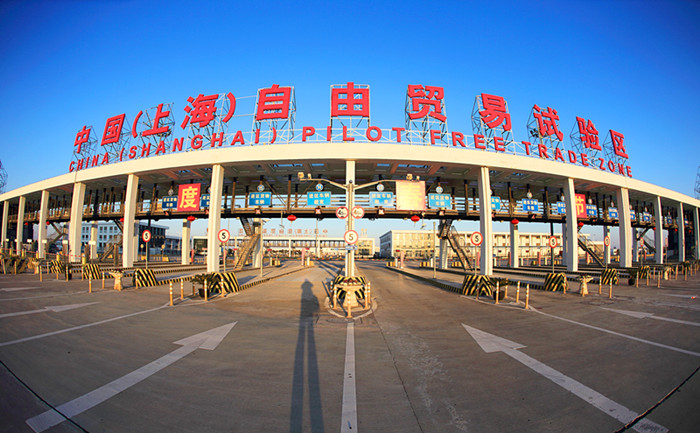Role of Shanghai FTZ continues to grow


The China (Shanghai) Pilot Free Trade Zone. [Photo provided to chinadaily.com.cn]
Pilot innovations have been crucial to the development of the China (Shanghai) Pilot Free Trade Zone, which was launched 10 years ago to drive institutional innovation and the country's opening-up efforts.
Another 19 free trade zones and one free trade port have been set up in China since the establishment of the Shanghai FTZ, and they have together created 302 institutional measures that have been adopted cross China. Nearly half of these measures, or 145 of them, were first experimented at the Shanghai FTZ, according to the city government's news conference on the 10th anniversary of Shanghai FTZ held on Sept 15.
The negative list mechanism for foreign investment first implemented in the Shanghai FTZ is one of the most significant institutional breakthroughs made over the last decade. While 190 sectors were included in the first version of the negative list in 2013, the number has dwindled to a mere 27 in the latest version.
Pudong New Area, where the Shanghai FTZ is included, has also benefited from the various innovations. Between the FTZ's inception 10 years ago and the end of 2022, Pudong had attracted 18,691 foreign-invested projects that had a combined registered capital of $217.3 billion.
In 2022, Pudong's regional GDP amounted to more than 1.6 trillion yuan ($220 billion) - 2.5 times of the size in 2013.
In a survey that polled 931 companies operating in the Shanghai FTZ, more than 80 percent of them believe that the establishment of the Shanghai FTZ has improved the overall business environment in the city, according to the White Paper on the 10th Anniversary of the Shanghai FTZ.
Sixty-eight percent of these companies are from the service industry, 18 percent are from the manufacturing industry and the remainder is made up of those from other industries.
Over 90 percent of the polled companies acknowledged that government efficiency has been steadily improving over the past 10 years, while more than 80 percent said local government policies have been becoming more transparent.
The majority of these companies expressed confidence that more reform and innovative measures will be introduced in the Shanghai FTZ in the coming years.
Officially launched on Sept 29, 2013, the Shanghai FTZ is the first of its kind in China and covers more than 240 square kilometers. The FTZ had undergone two expansions in 2014 and 2019.











.png)
.png)
.png)





